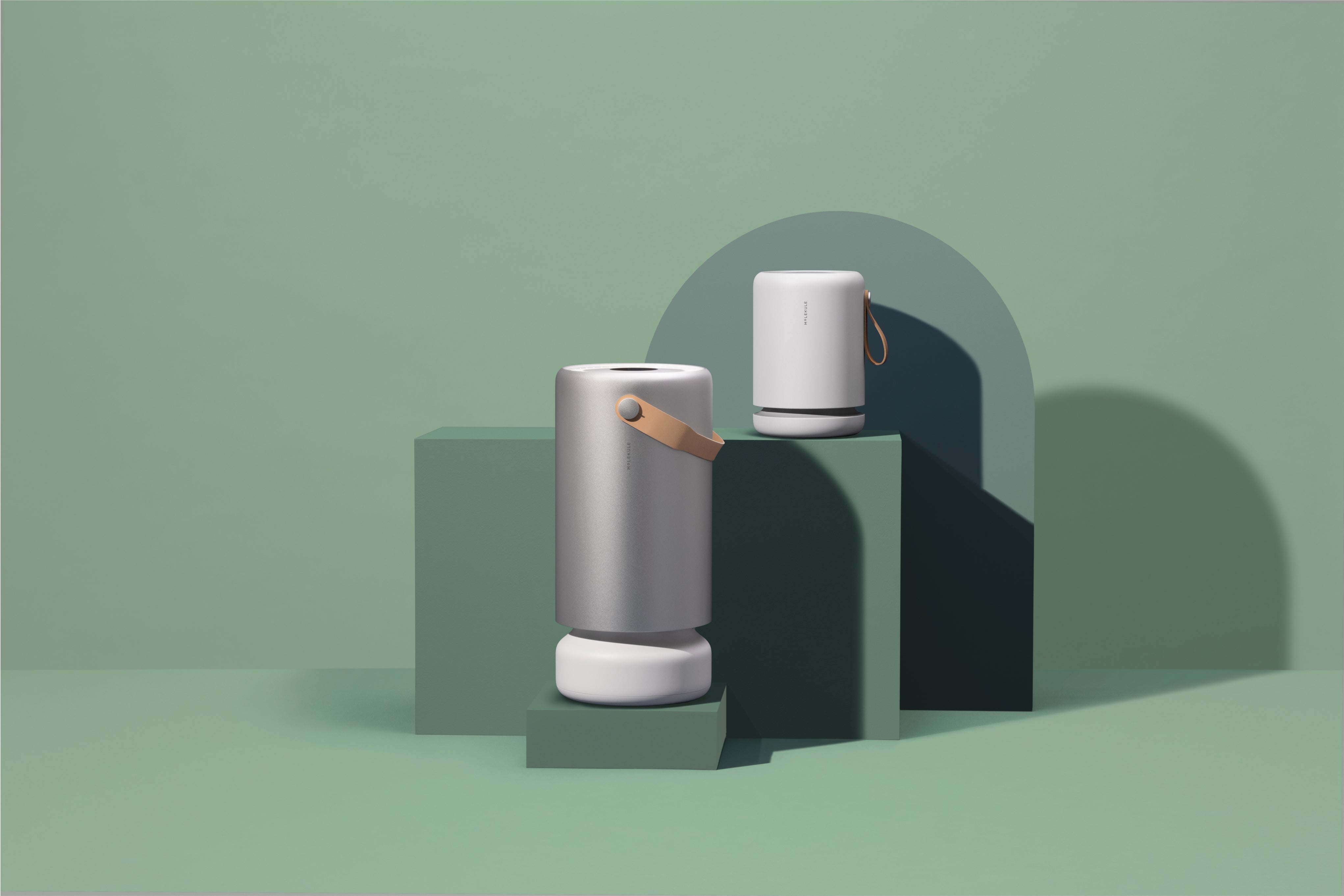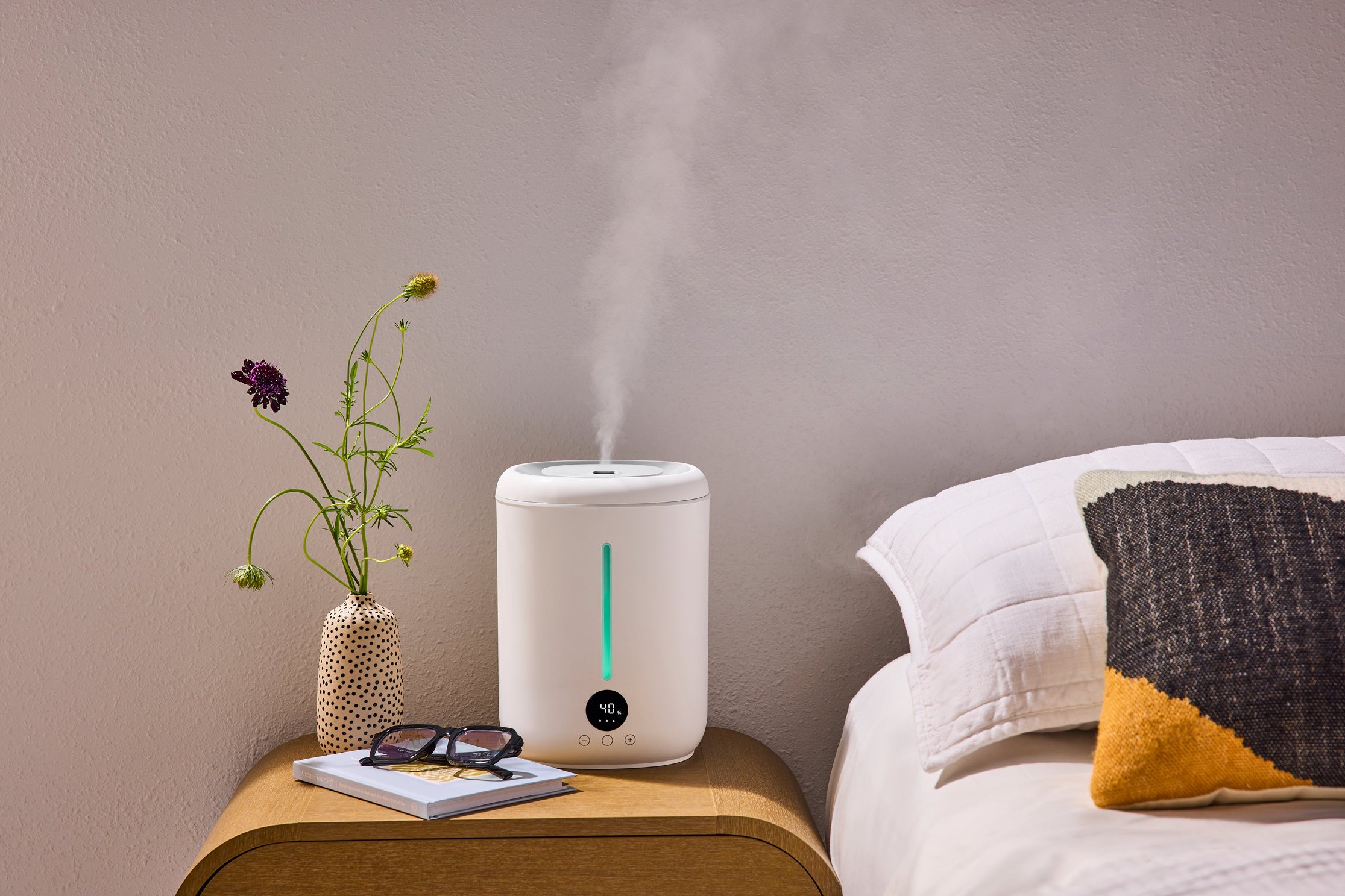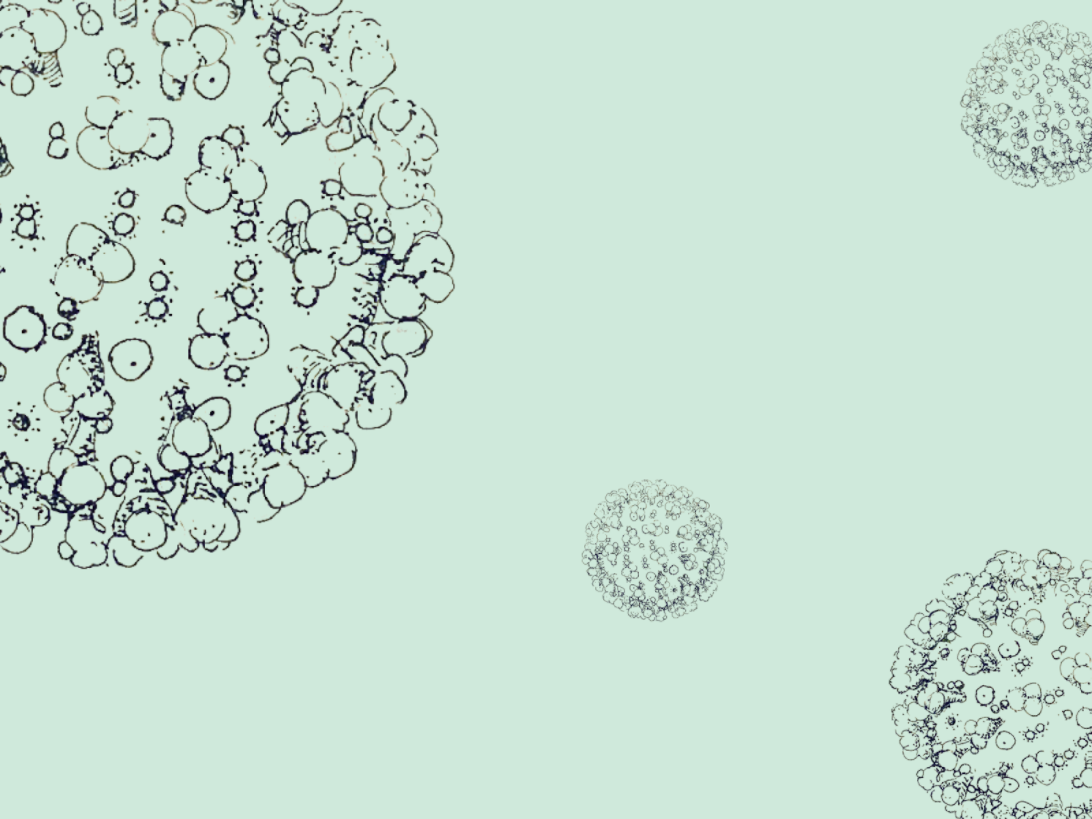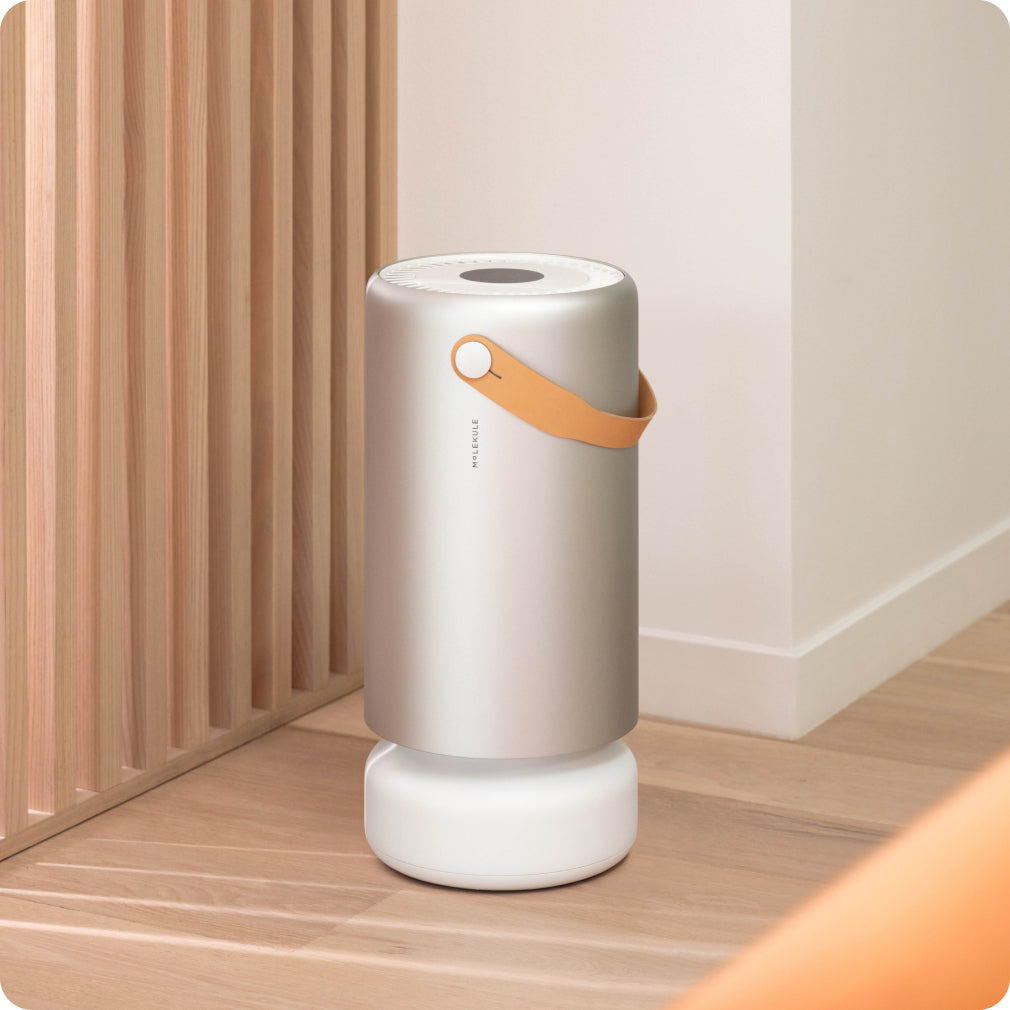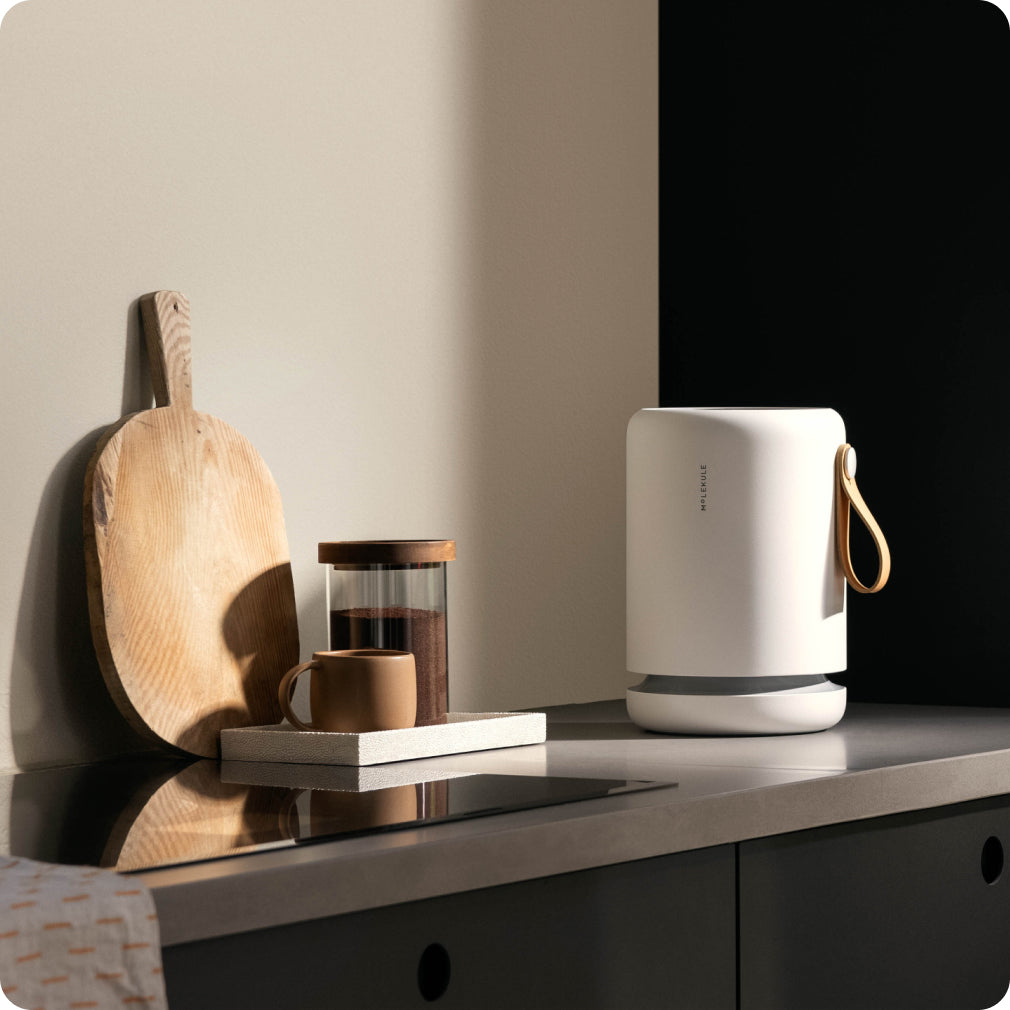Testing was completed on bovine and porcine coronavirus strains and indicates up to 99.99% inactivation of viral particles with PECO technology.
SAN FRANCISCO, Jan 14th, 2021 — Molekule, the leader in reinventing air purification, today announced critical testing from the University of Minnesota College of Science and Engineering and College of Veterinary Medicine that demonstrates that Molekule’s air purification technology, incorporating PECO technology, inactivates coronavirus strains (bovine and porcine strains) and the H1N1 flu virus by up to 99.99% in single pass experiments. Molekule’s PECO technology has a robust proven history of using oxidation to destroy airborne pollutants, including VOCs.
The testing illustrates that Molekule’s nanotechnology promotes significant inactivation of the viruses, a distinction from traditional air filtration. The testing demonstrates that the viruses were rendered inactive in a wind tunnel, single-pass efficiency test (or real time test) at a total removal rate of 99.99% for influenza and exceeding 99% for coronaviruses. The testing utilized some of the most sophisticated methodology in the country, with a renowned university lab known for air quality testing, aerosol science, and viral expertise. This is the most direct test of collection and inactivation possible, according to the research team, as there is only one chance for the PECO-Filter to be successful.
“We built a single-pass efficiency wind tunnel, which demonstrated the Molekule unit had no flow bypass and showed inactivation of coronavirus strains and the flu virus with Molekule’s PECO technology,” explained Dr. Chris Hogan of the Department of Mechanical Engineering at the University of Minnesota and an editor at the Journal of Aerosol Science. “HEPA filters, while capable of trapping viral particles, are not designed to render them inactive, so it’s important to look for new types of air purification technology and testing methodologies that can do that.”
As winter sets in and the coronavirus spreads at an alarming rate, Director of the CDC Dr. Robert Redfield recently cautioned that the next few months may be “the most difficult in the public health history of this nation.” COVID-19 cases have topped 20 million, setting a record high in the U.S., while vaccines are not expected to be in wide circulation until the second quarter of 2021.
“This year has made it clear that we need a new defense to help protect the air we breathe indoors. The role new air purification technologies can play in this is critical. In an industry that hasn’t innovated for decades, we need technology that does more than just try to capture viruses; but also render them inactive,” said Jaya Rao, CEO and Co-Founder of Molekule. “As opposed to current air purifiers that attempt to filter the air, Molekule is an essential, new generation of air purification technology that breaks down and destroys pollutants at a molecular level. In the University of Minnesota testing, Molekule Air Mini was reviewed as effective at dramatically reducing and inactivating viable airborne coronavirus strains (bovine and porcine strains) and an H1N1 flu strain, under the rigorous conditions of the testing.”
Dr. Montserrat Torremorell, a professor in the University of Minnesota’s College of Veterinary Medicine and an infectious disease animal health expert, shed light on the virus strains — PRCV, BCoV and H1N1 — used in the experiments.
“Deadly human coronaviruses, such as SARS-CoV, MERS-CoV and SARS-CoV-2, are closely related to porcine respiratory coronavirus (PRCV) and bovine coronavirus (BCoV), which can be used as surrogate viruses for SARS-CoV-2,” Torremorell said. “These viruses are structurally similar and in the same family of coronaviruses and they have similar transmission characteristics. Veterinary science is well-versed in combating viral outbreaks in animal herds, making veterinarians uniquely equipped to study viral transmission and strategies to control transmission in populations.”
PECO is well suited to inactivate viruses, which it does via oxidation. In the instance of porcine and bovine coronaviruses, their club-shaped spikes protrude from the outside envelope of their virus particles. These spikes are necessary for infection, and sufficient damage to them effectively inactivates the virus. These fragile, thorny spikes encounter the inactivation ability of PECO after entering into the filter. Molekule’s approach represents a novel method of protection from coronaviruses — attacking the corona in the purification process.
Historically, Molekule has used oxidation to destroy other airborne pollutants, including bacteria, mold, viruses, and endospores, as well as VOCs.
About the University of Minnesota Testing
In 2020, the University of Minnesota College of Science and Engineering and College of Veterinary Medicine tested Molekule’s PECO technology using an Air Mini device and its operating flow rate in single-pass efficiency testing with viable viruses in aerosol transmission. Methods developed for the research allowed measurement and characterization of airborne virus detection and inactivation by air purification technologies. For the PECO technology, testing showed near 99.9% removal and total removal rates (virus titer based) approaching 99.99% for influenza A and exceeding 99.9% for bovine coronavirus. Dr. Chris Hogan and Dr. Montserrat Torremorell led this research.
About Molekule
Molekule is on a mission to provide clean indoor air to everyone, everywhere. Based on 25 years of research and development, the company’s patented photo electrochemical oxidation (PECO) technology destroys the widest range of pollutants, including VOCs, mold, bacteria, viruses, and allergens, when compared to conventional filters. Molekule’s range of air purification solutions have been reviewed and validated by third-party laboratories, as well as continual internal testing, and its medical-grade product has been granted medical device clearance by the FDA. Today, Molekule is available at Best Buy and on Amazon. It is also sold internationally in India, Japan, South Korea, and Canada. For more information, visit https://molekule.com.
